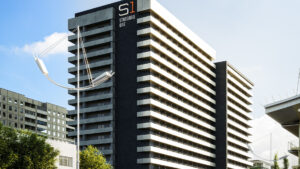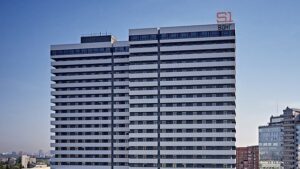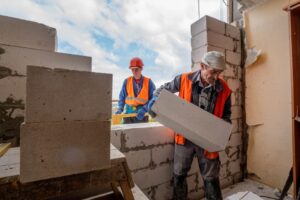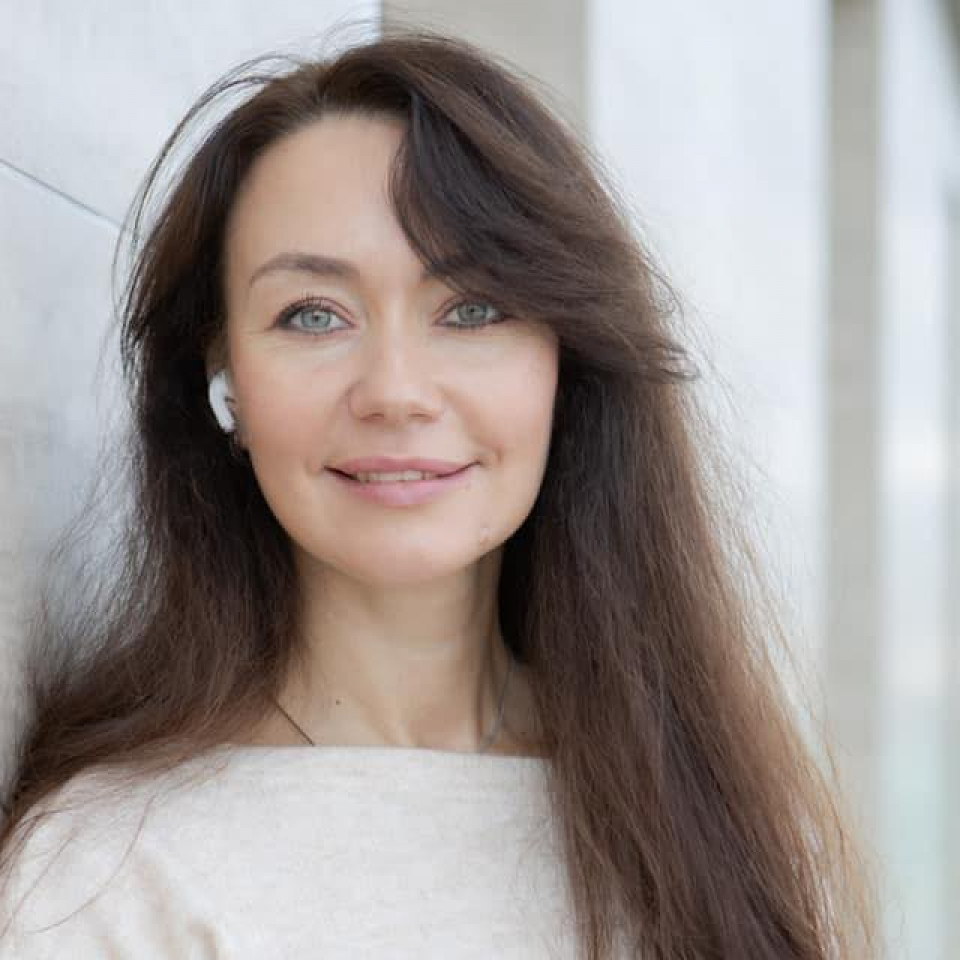
Developer Perfect Group has commissioned more than 60 thousand square meters of housing in 2025, the press service of the company told the agency “Interfax-Ukraine”.
“In 2025 we actively worked on a number of Residential Complexes within the consolidated portfolio: we completed Residential Complex ”7 KVARTAL“ house 7.2, Residential Complex ”Swan Guest House“ and put into operation lines in Residential Complex ”Likograd”. We are actively working on projects, among which are apart-hotel “VELMY”, Residential Complex ‘Stanford’ and Club House “LA MANCHE”, – said the head of Perfect Group projects Alexey Koval.
In particular, according to his data, the total area of the commissioned house in “7 KVARTAL” is 21 thousand 605,0 sq. m., there are 288 apartments with the area of 16 thousand 18,4 sq. m. in it. Residential Complex “Likograd” total area is 31 thousand 691,9 sq. m., the area of 384 apartments is 25 thousand 199,5 sq. m. LCD “Swan Guest House” – total area of 8 thousand 264.5 sq. m., 163 apartments totaling 7 thousand 889.4 sq. m.
“The peculiarity of the year – realization in conditions of increased requirements to safety and autonomy of houses, therefore a part of technical solutions were specified already in the process of construction”, – Koval emphasized.
According to him, among the practical changes that have become “the new norm”: strengthening of engineering solutions for the operation of the house during power outages (backup power supply of critical systems, optimization of ITP/pumping equipment), additional fire safety measures and for the organization of evacuation, as well as a more systematic approach to barrier-freeness in common areas (entrances without thresholds, convenient routes to elevators, width of passageways, navigation).
“Some of the solutions were refined to take into account the availability of materials/logistics and the safety situation, but the overall concept of project quality was retained,” he says.
Next year, the company expects a cautious increase in market activity, provided the safety situation is relatively stable and demand financing tools are maintained/expanded.
“Our focus is on projects with proven liquidity, phased queues and clear economics. We are planning to fully complete the 7 KVARTAL Residential Complex, bring the LA MANCHE Residential Complex to the final stage, and introduce the first stages of the Standford Residential Complex. From new projects – LCD “New Tone”, – said Koval.
As for prices, he believes, their cost price will be primarily influenced by the wage factor. “We have already faced a catastrophic shortage of labor in the Ukrainian market. We are actively working on labor contracts with foreigners for contract work, including the search for workers in India and a number of other countries,” Koval said.
In addition, the project manager added, the cost of production is pressured by the cost of energy, logistics and import-dependent positions. A separate item is the tightening of requirements for engineering systems and security.
“Our base scenario is cost of production growth within 15-20% y/y, but the range will depend on the exchange rate, material prices and the situation on the labor market. We are building in a margin of safety through longer contracts with contractors, optimizing design solutions without sacrificing quality and planning critical material purchases ahead,” said Kowal.
Founded in 1991, Perfect Group has delivered 45 homes since 2010, with 18 homes under construction.

Developer Standard One has announced the launch of a new investment and residential project in Kyiv, an apartment building on the left bank of the Dnipro River called S1 Poznyaki, with 756 apartments, according to the company’s press service.
“S1 Poznyaki is our new and largest project to date. We are expanding our network of apartment buildings and entering a new scale in Kyiv,” said Standard One Commercial Director Nadiya Rybakova, whose words are quoted in the press release.
She noted that the project is based on the build-to-rent model, which has been operating for many years in the first building of the network, S1 VDNG. The building is designed with a focus on liquidity. Most of the apartments are compact studios, which are in high demand on the rental market.
The projected profitability of the project is 8-12% per annum in dollars, and the capitalization potential during the 2-3 years of construction is up to 40% in currency.
The S1 Poznyaki complex is located in the Poznyaki microdistrict of the Darnytskyi district of Kyiv. The building has 24 floors: the first two floors will have 7,000 square meters of commercial space, and floors 3 to 24 will have 756 apartments for rent. About 80% of the apartments are one-room apartments, mainly studios with an area of 35 square meters.
The apartments are being built with white box renovations and will be ready for furnishing and rental after the keys are handed over. All operational obligations are assumed by the internal income property management company S1 Property, such as cleaning, repairs, installation of equipment, search for tenants, signing of contracts, monitoring of the condition of the apartments, and administration. Everything works through a single service.
The building will have a generator to provide electricity if necessary and its own roof boiler room to provide water and heat. During a blackout, in particular, the building will remain completely autonomous for two days. Guest parking for 360 cars is provided. The complex is equipped with a shelter and an access control and video surveillance system, as well as physical security.
The nearest metro station, Poznyaki, is a 2-3 minute walk away, and nearby is Lake Sribny Kol with walking areas, a park, a promenade, and sports grounds. Within a few minutes’ radius are schools, kindergartens, supermarkets, cafes, and all the necessary infrastructure for a comfortable life.
The lobby, with an area of about 500 square meters, features a coworking space, lounge areas, and its own cinema space. Several community spaces have been created, and there is a gym, as well as spaces for fitness, Pilates, yoga, and TRX. A laundry room is available for everyday needs.
Commercial premises are allocated for a supermarket, coffee shop, pizzeria, pharmacy, dental clinic, and office space.
Standard One (S1) is a full-cycle development company that has been developing the build-to-rent real estate segment in Kyiv since 2016. Its portfolio includes the completed S1 VDNG project and the new S1 Obolon, S1 Terminal, S1 Nyvky, and S1 Poznyaki buildings.

The share of investors who repeatedly buy S1 REIT fund certificates from the developer Standard One has grown to 43% in the five months since the funds began operating, according to the project’s press service.
“We have provided investors with the opportunity to increase their profits by increasing their own share. The minimum additional investment is equal to the cost of one certificate, which is just over UAH 1,000. But despite our expectations, the average amount of repeat sales is significantly higher, at almost UAH 90,000,” said Viktor Boichuk, commercial director of S1 REIT, in a press release.
He noted that currently, the vast majority of investors are people with investment experience who already have a certain portfolio of assets.
“For them, S1 REIT is an opportunity to diversify their asset portfolio with a relatively small check. In the first weeks of our work, investors went through a ”getting to know you” phase, studying us and our offer. Now we see their confidence growing,” Boichuk added.
He added that the project plans to scale up by reaching a new audience—Ukrainians who have not yet had experience in investment activities due to a lack of knowledge or significant start-up capital.
“The key advantage of S1 REIT is its accessibility. The entry threshold is the equivalent of $3,000, which is significantly less than the initial investment in the Kiev real estate market,” said the top manager.
As reported, in April this year, Kiev-based developer Standard One, which specializes in Build-to-Rent projects, announced the launch of a new product, S1 REIT. This is an investment tool that allows you to become a co-owner of square meters in profitable S1 buildings without having to personally manage the assets. Currently, S1 REIT has two open funds: S1 VDNH, with a planned yield of 8.2% per annum in US dollars, and S1 Obolon, with a yield of up to 10% per annum.

Installment plans with extended repayment terms offered by developers are in high demand among homebuyers and are an alternative to government mortgage programs, Ukrainian developers told Interfax-Ukraine.
“In 2024-2025, we are seeing growth in the share of customers who choose long-term interest-free installment plans from KAN Development. This is due to increased buyer confidence in the future, especially given the improved security situation in Kyiv. The eOselya and eVidnovuvannya programs have had a limited impact on our sales so far. Most customers choose other financial solutions, in particular our own programs,” said the KAN Development press service.
In recent years, there has been a growing demand for longer installment plans, noted Irina Mikhaleva, SMO Alliance Novobud. In addition, developers are offering programs with reduced down payments.
“At the start of construction, we can offer longer installment plans—12, 24, or 36 months. This is because, as a rule, installment plans are provided until the project is commissioned. We also frequently receive requests from buyers to reduce the down payment, which can be anywhere from 10% to 50%,” said the expert.
The Kovalskaya Group’s internal installment plans offer a fixed price per square meter for up to five years with a down payment of 30% of the property value. According to the company, they take an individual approach to buyers’ needs.
“Installment plans have become more flexible: if a customer realizes that they will not be able to make monthly payments, we are open to dialogue and ready to work together to find a convenient solution. It is possible to agree on an individual schedule, for example, to extend the installment period, temporarily reduce the amount of payments with a subsequent return to standard payments, restructure the loan, or exchange the apartment for another of the same size or in another construction project,” explained the developer.
The company “RIEL” in the second launch complex of the capital’s Brother project offers buyers the opportunity to purchase housing in installments until the facility is put into operation in the second quarter of 2028, noted Alla Chipak, sales coordinator at “RIEL” in Lviv. In addition, in some residential complexes, the down payment has been reduced to 10% of the apartment price.
Given the popularity of the developer’s renovation option, Intergal-Bud also offers the possibility of paying for renovations in installments along with the apartment, said Anatoly Kovrizhenko, deputy commercial director of Intergal-Bud.
According to the DIM group of companies, developer lending programs with extended installment terms are an alternative to state mortgage programs with loan limits. The company has its own financial programs, under which the down payment is 30% of the cost of the property, and the installment period is up to five years.
In addition, DIM offers a long-term installment plan of up to 10 years.
“In early June, we launched a long-term installment plan in hryvnia for a period of 10 years, with the option of early repayment, price fixing in hryvnia, fixing the price per square meter in the contract, without linking it to the exchange rate or market price increases, with a fixed interest rate of 10% per annum in hryvnia and a down payment of 30%. It was planned to launch as a pilot project for two months, testing it in large residential complexes such as Metropolis, Lucky Land, and Park Lake City. However, we received quite a few inquiries from buyers, which turned into real deals, so we continued the program until the end of the summer,” said Alexander Nasirovsky, managing partner of DIM.

Installment plans with extended repayment terms offered by developers are in high demand among home buyers and are an alternative to state mortgage programs, Ukrainian developers told Interfax-Ukraine.
“In 2024-2025, we are seeing an increase in the share of customers who choose long-term interest-free installments from KAN Development. This is due to increased buyer confidence in the future, especially given the improved security situation in Kyiv. The ‘єОселя’ and ”єВідновлення” programs have had a limited impact on our sales so far. Most customers choose other financial solutions, in particular, our own programs,” said the press service of KAN Development.
In recent years, there has been a growing demand for longer installment plans, noted Irina Mikhalova, CMO of Alliance Novobud. In addition, developers are offering programs with reduced down payments.
“At the start of construction, we can offer longer installment terms—12, 24, or 36 months. This is because, as a rule, installments are provided until the project is commissioned. We also frequently receive requests from buyers to reduce the down payment, which can be either 10% or 50%,” the expert said.
The Kovalskaya Group’s internal installment plans offer a fixed price per square meter for up to five years with a down payment of 30% of the cost of the home. According to the company, an individual approach to the buyer’s needs is practiced.
“Installment plans have become more flexible: if a customer realizes that they will not be able to make monthly payments, we are open to dialogue and ready to work together to find a convenient solution. It is possible to agree on an individual schedule, for example, to increase the installment period, temporarily reduce the amount of payments with a subsequent return to standard payments, carry out restructuring, exchange an apartment for another area or in another construction project,” explained the developer.
The company “RIEL” in the second launch complex of the capital’s Brother project offers buyers to purchase housing in installments until the facility is put into operation in the second quarter of 2028, said Alla Chipak, coordinator of the sales departments of “RIEL” in Lviv. In addition, in some residential complexes, the down payment has been reduced to 10% of the apartment’s cost.
Given the popularity of the developer’s renovation option, Intergal-Bud also offers the possibility of paying for renovations in installments along with the apartment, said Anatoliy Kovrizhenko, sales director at Intergal-Bud.
According to the DIM group of companies, developer lending programs with extended installment terms are an alternative to state mortgage programs with loan amount limits. The company has its own financial programs, under which the down payment is 30% of the cost of the property, and the installment term is up to five years.
In addition, DIM offers a long-term installment program of up to 10 years.
“In early June, we launched a long-term installment program in hryvnia for a term of 10 years, with the possibility of early repayment, a fixed price in hryvnia, a fixed price per square meter in the contract, without reference to the exchange rate or market price increases, with a fixed interest rate of 10% per annum in hryvnia and a down payment of 30%. It was planned to launch as a pilot project for two months, to test it in large complexes of quarterly development such as Metropolis, Lucky Land, and Park Lake City. However, we received quite a few inquiries from buyers, which turned into real deals, so we continued the program until the end of the summer,” said DIM managing partner Alexander Nasikovsky.

We understand that the issue of security in residential complexes, including social infrastructure, requires a comprehensive approach.
That is why in our projects we apply a three-level security system, namely: personal security (closed area, access control system, video surveillance and security), energy security (enhanced means of automation of engineering communications, use of alternative energy sources (if necessary), as well as design of geothermal pumps for apartment construction, which reduces heating consumption by at least 40% and energy consumption by about 35 kWh per square meter), and social security,” says the company. This, as the practice of already inhabited houses shows, removes a lot of domestic issues and cohabitation on the territory.
Social facilities are not isolated in time and space point developments (schools, kindergartens, development centers, community centers), but part of our living ecosystem. Therefore, they are fully designed according to our approaches and values: well-thought-out ergonomics of living space, high level of energy efficiency (achieved, for example, through double-glazed windows with a new generation of high-quality glass with magnetron sputtering, which allows sunlight to penetrate into the room while not letting the sun’s heat through, durable heat-resistant mineral wool from the global brand Rockwool, which provides an optimal internal microclimate without interfering with the natural diffusion of excess water vapor and demonstrating high thermal insulation properties), aesthetics and service of the highest level.

Currently, our portfolio of large social facilities includes kindergartens and schools at various stages of implementation, and we already know the operators – KMDS (Lucky Land residential complex) and an elementary school in the Park Lake City multifunctional cluster (British International School in Ukraine), a community center for neighbors in Park Lake City with a restaurant and several attraction areas, where everyone will find something for everyone. A bilingual kindergarten will also be located in Park Lake City. It will be a two-storey institution with an area of almost 3 thousand square meters, designed for 180 children aged 3 to 5 years.
In total, we will have 6 kindergartens in Lucky Land, so we have enough work to do. We plan to implement everything gradually with the construction of new houses in order to organically meet the demand of young parents for a high-quality, safe and comfortable space for their children to grow up.
Daria Bedia, Marketing Director at DIM